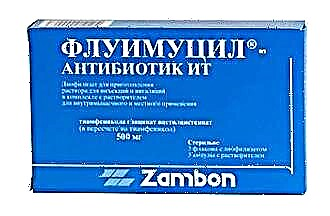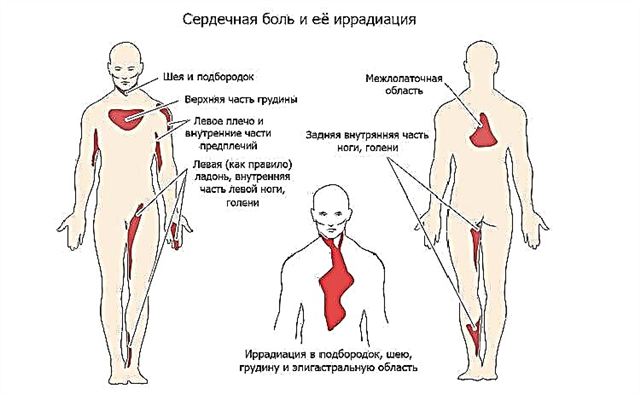 Complications after adenotomy are rare, but parents should still be aware of what to expect after the procedure. In most cases, children have fever after adenotomy, snoring, bleeding and sore throat.
Complications after adenotomy are rare, but parents should still be aware of what to expect after the procedure. In most cases, children have fever after adenotomy, snoring, bleeding and sore throat.
Knowing the features of the course of the postoperative period, parents will not panic when some symptoms appear.
Now let's take a closer look at what complications can develop after surgery.
Temperature increase
The consequences of removing the adenoids depend on the characteristics of the operation, the state of health of the child and his age. Subfebrile hyperthermia in the postoperative time is considered normal. Its appearance is due to the reaction of the immune system to the operation, as a stressful and traumatic factor for the body. Damage to tissue during adenotomy is accompanied by inflammation, which provokes a slight increase in temperature.
It is not worth bringing down the temperature if it does not exceed 38 degrees. Usually subfebrile condition goes away on its own 3 days after adenotomy. If the temperature exceeds 38 degrees, you should increase the drinking regime, wipe the baby's skin with warm water and give antipyretic drugs.
To combat hyperthermia, drugs with acetylsalicylic acid cannot be used. Its properties include not only antipyretic, but also a blood-thinning effect, which increases the risk of bleeding.
Parents of babies should be extremely careful, because a high temperature is fraught with the appearance of vomiting and seizures in the child. Typically, hyperthermia is recorded in the evening, but an increase in temperature in the evening is possible.
To avoid the appearance of complications of hyperthermia, it is necessary to measure the temperature twice a day for 4-5 days, even with the normal condition of the child.
If the temperature exceeds 38 degrees, the child should be given Nurofen or Panadol syrup. At a younger age, rectal suppositories (Efferalgan) can be used. If febrile hyperthermia persists for 3 days, a doctor's consultation is required.
A rise in temperature may indicate a physiological response to tissue damage and inflammation, or an infection of the body. Infection is possible during surgery, when the rules of asepsis are not followed or after the intervention due to a decrease in immune protection. Temporary immunosuppression is fraught with the development of colds, which is why in the coming weeks after adenotomy it is recommended to restrict the child from communicating with sick people.
Depending on the reason why the temperature has risen, the doctor may prescribe:
- antibacterial agents (Augmentin, Flemoklav, Summamed, Zinnat);
- antipyretic drugs (Nurofen, Efferalgan);
- solutions for washing the nasal cavities (Aqua Maris, Humer);
- solutions with antiseptic, analgesic and anti-inflammatory effects (Miramistin, Chlorophyllipt, herbal decoctions).
Snoring after adenotomy
Statistics confirm that 90% of children who snore at night have lymphoid growths of the pharyngeal tonsil (adenoids). At the beginning of the development of the disease, treatment with conservative methods is possible. The effect of therapy depends on the timeliness of the treatment of the parents with the child, as well as the state of his immunity.
Adenotomy is performed when medication fails to reduce tonsil hypertrophy and complications develop. Many parents believe that surgery is a panacea for adenoids, but this is completely true. After surgery, some symptoms of adenoids (snoring, nasal congestion) may persist and relapse.
What are the reasons for the persistence of snoring after surgery? Snoring after removal of the adenoids is due to:
- runoff of mucus along the posterior pharyngeal wall in a supine position. The appearance of mucous secretions occurs with chronic sinusitis;
- nasal congestion due to chronic sinusitis;
- anomaly of the palatine curtain, narrow nasal passages, curvature of the septum;
- an increase in the uvula due to edema and inflammation;
- the habit of breathing through the mouth.
If the listed reasons were excluded during the diagnosis, it is worth suspecting the pathology of the internal organs:
- dysfunction of the thyroid gland;
- metabolic disease;
- allergies to food, wool, pollen, predisposing to inflammation and swelling of the nasopharyngeal mucosa;
- genetic diseases.
You can worry about snoring 2 weeks after the adenotomy, when this symptom should go away. During the crescent, snoring is observed due to swelling of the tissues of the nasopharynx due to their injury. As a result, the nasal passages are narrowed and breathing through the nose is impaired. Also, snoring may appear due to incomplete removal of lymphoid tissue.
 To alleviate the child's condition, the following are prescribed:
To alleviate the child's condition, the following are prescribed:
- nasal drops with a vasoconstrictor effect (Vibrocil, Otrivin). They reduce the diameter of blood vessels, the release of fluid from the bed, thereby reducing the severity of edema;
- breathing exercises;
- antihistamines (Suprastin, Claritin), which reduce mucosal edema;
- washing the nasal cavities with sea water, herbal decoctions (chamomile, sage, oak bark), as well as the oropharynx (Rotokan, Chlorhexidine, Givalex).
Pain syndrome
Having removed the adenoids, the consequences can be represented by pain when swallowing in the area of the pharynx, nose and ear. Because of pain, a child may refuse food so as not to provoke its appearance. To alleviate the condition, parents should pay special attention to the nutritious diet, in particular, the way food is prepared.
To reduce pain, the following are prescribed:
- solutions for rinsing the throat based on anti-inflammatory, antiseptic and analgesic components (Rotokan, Stopangin, Tantum Verde);
- throat sprays (Bioparox, Strepsils, Septolete);
- herbal decoctions (calendula, chamomile, oak bark).
If the pain spreads to the ear area, otitis media may develop. Usually it is possible to identify the disease at the stage before the perforation of the membrane. In treatment, you can use:
- ear drops (Otipax, Sofradex);
- boric acid (alcohol solution). It is used as a remedy for wetting cotton turundas, after which they are located in the ear canal;
- vasoconstrictor nasal agents (Nazivin, Tizin), which reduce tissue edema; antihistamines such as Zodak, Erius, or Loratadin;
- antibacterial drugs (Amoxiclav); physiotherapy procedures (laser, UFO).
Complications of adenotomy
In the postoperative period, bleeding is possible (0.4% of cases). With massive bleeding from the nasal cavities and oropharynx, blood may be released in the form of clots or drops. This is a rather rare complication. Medical care consists in packing a wound or cauterizing a bleeding vessel.
In the early postoperative period, a child may cough due to blood entering the larynx. Cough after removal of the adenoids can last 1-2 days.
Note that slight bleeding is possible within a month after adenotomy. Don't worry about this. The mucus may show streaks of stale blood or bloody crusts.If parents still have concerns about this, you can consult your doctor. If necessary, the doctor prescribes hemostatic agents.
Among the possible complications, it is also worth noting:
- nasalness. The voice may change due to swelling of the mucous membrane and a decrease in the lumen of the nasal passages. There is no need to worry about this, the symptom goes away on its own after 8-10 days;
- allergic reactions to medicines used for anesthesia;
- re-proliferation of lymphoid tissue;
- fuzzy pronunciation of consonants, which is observed due to incomplete closure of the nasal cavity by the soft palate;
- spasm of the cervical muscles (torticollis);
- odor from the mouth after removal of the adenoids. After surgery, white scabs may appear in the oropharynx and nasal cavities, which gradually disappear. They can smell unpleasant.
Postoperative period
A huge number of children face the problem of enlarged adenoids. Despite conservative treatment, surgical intervention is often prescribed. Adenotomy is considered a simple operation, after which, after 3-4 hours, parents can take the child home. But parents must understand that the responsibility for the child's condition is now on their shoulders. It is mandatory to monitor the child's well-being and strict adherence to medical recommendations.
What is required of parents?
- providing a sparing regime (limiting outdoor games, visiting sports clubs);
- reduction of communication with sick people and time spent in public places, especially during periods of flu. This will reduce the risk of developing colds;
- daytime sleep for at least 2 hours;
- frequent wet cleaning in the children's room and airing; hot bath, tanning and prolonged exposure to the sun are prohibited. Overheating of the body is fraught with an increase in temperature and delayed wound healing;
- nutritional regimen requires the elimination of solid foods, hot, spicy and fried foods. Emphasis should be placed on curd products, kefir, cereals and vegetables. Starting from the second week, the diet can be expanded with eggs, soup, meat and fish. Fruit is allowed only in the third week;
- breathing exercises allows you to teach your child to breathe through the nose, while closing the mouth. Children get used to breathing through the mouth, so even after surgery, they do not immediately rebuild.
Exercise, specially designed to strengthen the muscles of the mouth and normalize nasal breathing, is performed daily for a quarter of an hour. The amount of exercise increases gradually. Initially, the child performs 3 exercises, eventually reaching 15. At the first stage, gymnastics is carried out under the supervision of a physiotherapist. Parents can also be present in order to further monitor the correctness of the exercise at home.



